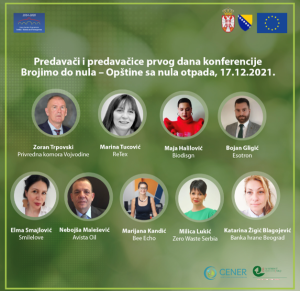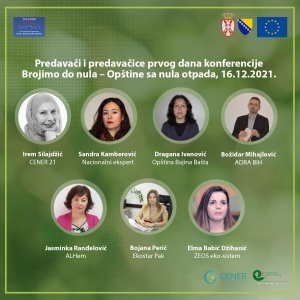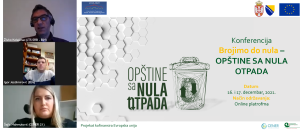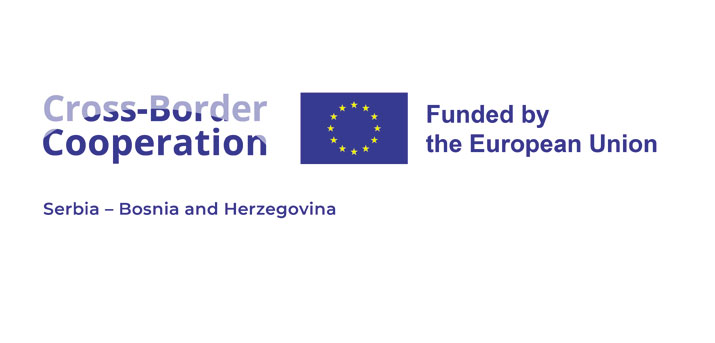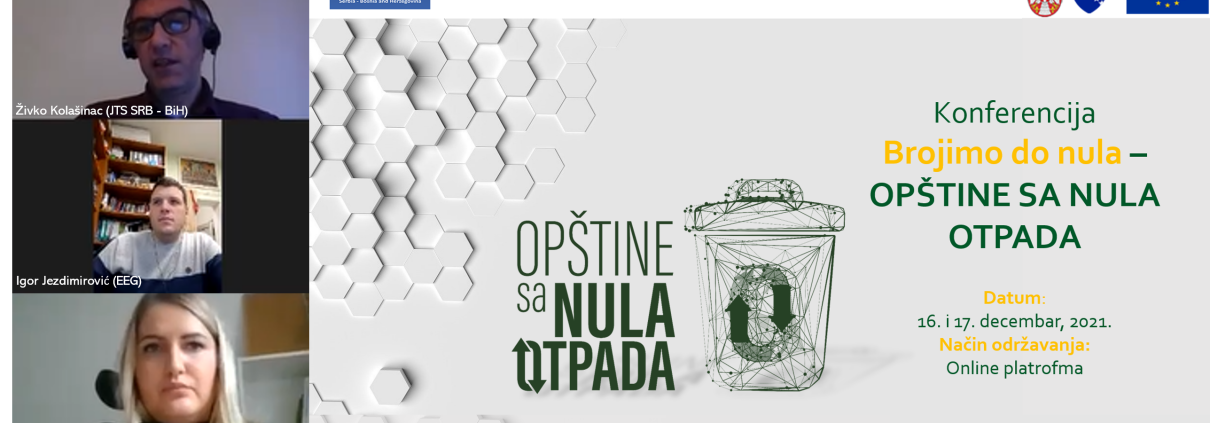Within the project Zero Waste Municipalities a conference Counting to Zero – Zero Waste Municipalities was held on December 16 and 17, 2021. It was the first of two planned conferences aimed at promoting the EU standards, policies and practices to increase resource efficiency in the waste management sector in the cross-border area.
During the two-day virtual event, 18 eminent lecturers from Serbia and Bosnia and Herzegovina shared their knowledge and experiences with over 100 participants from waste management utilities, local governments, ministries responsible for waste management, sustainable development and environmental protection, green entrepreneurs, students and teaching staff from the educational institutions, and representatives of other relevant institutions and organizations.
The welcome speeches were addressed by Igor Jezdimirovic, President of the association Environmental Engineering Group and Zivko Kolasinac, Head of the Joint Technical Secretariat of the IPA Cross-Border Cooperation Program SRB-BiH 2014-2020, emphasizing the importance and benefits of specific actions of cross-border cooperation.
Šejla Mahmutović, President of the Center for Energy, Environment and Resources and Project Manager, launched the working part of the conference with her presentation on project activities and expected results. “Over 400 European cities have recognized the zero-waste concept as a driver of socio-economic development of local communities and have strategically opted for it. Guided by the EU practices, the IPA cross-border cooperation project Zero Waste Municipalities seeks to contribute to strengthening of the economic development in six pilot municipalities: Bajina Bašta, Vladimirci, Krupanj, Visoko, Ilijaš and Sarajevo Centar, “highlited Mahmutović.
The first day of the conference was dedicated to the promotion of good management of resource-efficient sector by institutions from BiH and Serbia and local initiatives to achieve zero waste, while the second day was focused on zero waste and circular economy as drivers of economic development and efforts of local communities in the context of raising public awareness on sustainable consumption and production practices.
“The circular economy is a development opportunity for the countries of the Balkan region. BiH and Serbia are at the very beginning of the (essential) transition. It is crucial that the society adopts the narrative of the European Green Deal through the Sofia Declaration and understands the value of preserving natural resources and recognizing the economic benefits of switching to a circular/green economy and the possibility of new business opportunities that this economic model brings. Through the legal instruments promoted by the circular economy, mechanisms for keeping existing resources in circulation, and requirements for creating a new concept of waste-resource management in the context of achieving global goals: climate neutrality through the circular economy model can be prescribed. Attention should also be paid to social (economic) progress with a focus on strengthening and supporting industrial sectors to invest in innovative ways of doing business so that economic entities are competitive in the market. The transition will be successful if it has a minimal negative impact on society’s economy. All key actors in the transition (decision-makers, businesses, and consumers) will contribute to this success if the activities are carried out in synchrony and partnership. It is necessary to use the opportunity for new investments in clean technologies and enable regional cooperation in the context of the circular/green economy “, pointed out Sandra Kamberović – a regional legal expert on circular economy and environmental protection.
